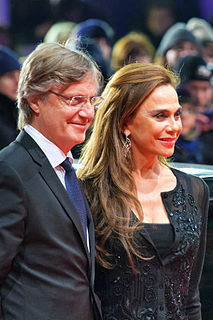A Quote by Rachel Kushner
In short, I'm pretty suspicious of the idea that there's a real and true and authentic world, and then a bunch of false ones.
Related Quotes
Either Christianity is true or it's false. If you bet that it's true, and you believe in God and submit to Him, then if it IS true, you've gained God, heaven, and everything else. If it's false, you've lost nothing, but you've had a good life marked by peace and the illusion that ultimately, everything makes sense. If you bet that Christianity is not true, and it's false, you've lost nothing. But if you bet that it's false, and it turns out to be true, you've lost everything and you get to spend eternity in hell.
All religions, plainly and simply, cannot be true. Some beliefs are false, and we know them to be false. So it does no good to put a halo on the notion of tolerance as if everything could be equally true. To deem all beliefs equally true is sheer nonsense for the simple reason that to deny that statement would also, then, be true. But if the denial of the statement is also true, then all religions are not true.
The fatal error of much science fiction has been to subscribe to an optimism based on the idea that revolution, or a new gimmick, or a bunch of strong men, or an invasion of aliens, or the conquest of other planets, or the annihilation of half the world--in short, pretty nearly anything but the facing up to the integral and irredeemable nature of mankind--can bring about utopian situations. It is the old error of the externalization of evil.
I pretty quickly move from an idea to possibilities for execution. If there's one advantage, I think, with working in television for even a short amount of time is trying to gain a faculty for processing a storyline or an idea and how to then best implement that and execute that as swiftly as possible.
It's not true that you should first think up an idea for a better world and only then "put it into practice," but, rather, through the fact of your existence in the world, you create the idea or manifest it - create it, as it were, from the "material of the world," articulate it in the "language of the world."
Pragmatism asks its usual question. "Grant an idea or belief to be true," it says, "what concrete difference will its being true make in anyone's actual life? How will the truth be realized? What experiences will be different from those which would obtain if the belief were false? What, in short, is the truth's cash-value in experiential terms?
What if we choose not to do the things we are supposed to do? The principal gain is a sense of an authentic act - and an authentic life. It may be a short one, but it is an authentic one, and that's a lot better than those short lives full of boredom. The principal loss is security. Another is respect from the community. But you gain the respect of another community, the one that is worth having the respect of.






































